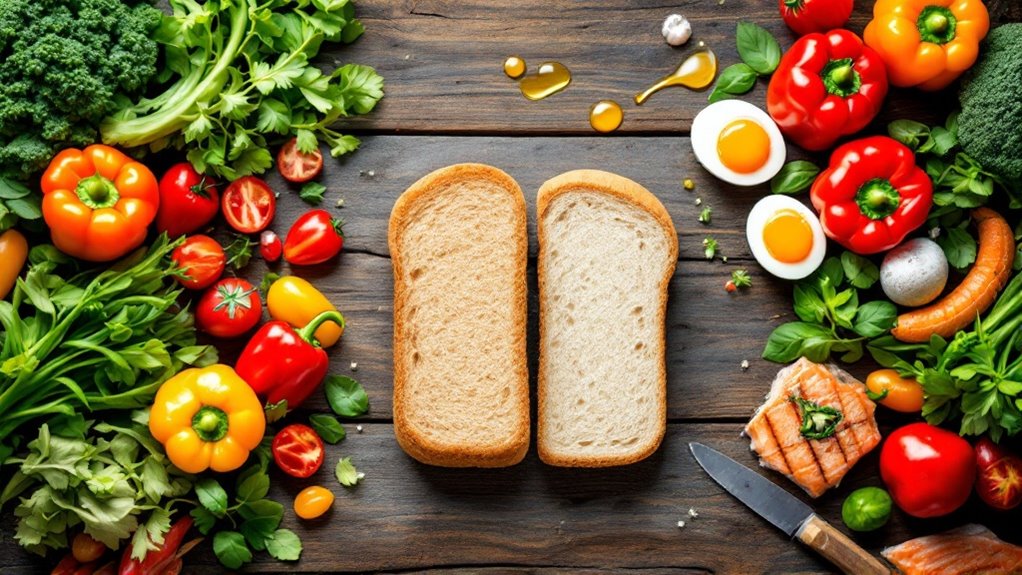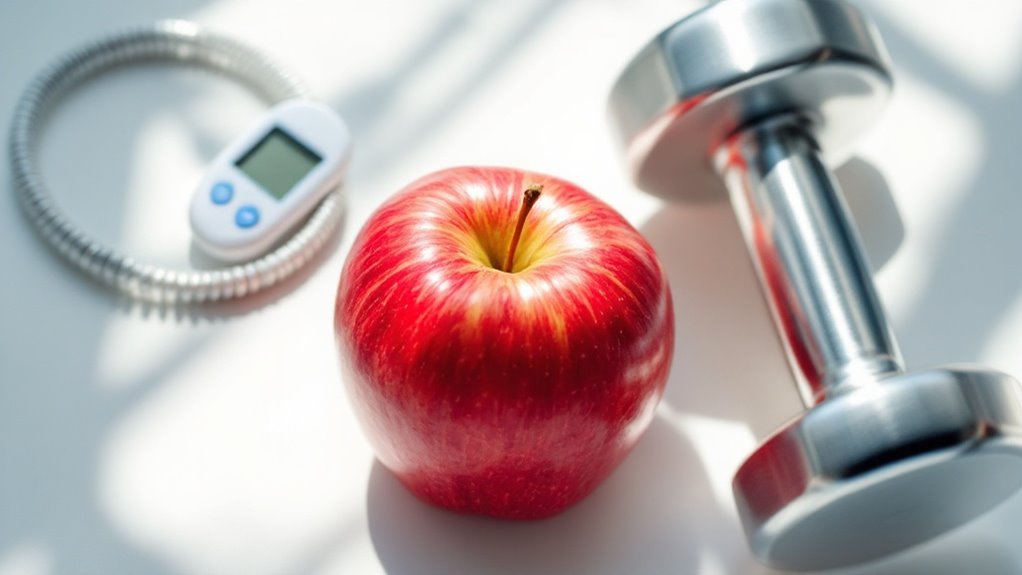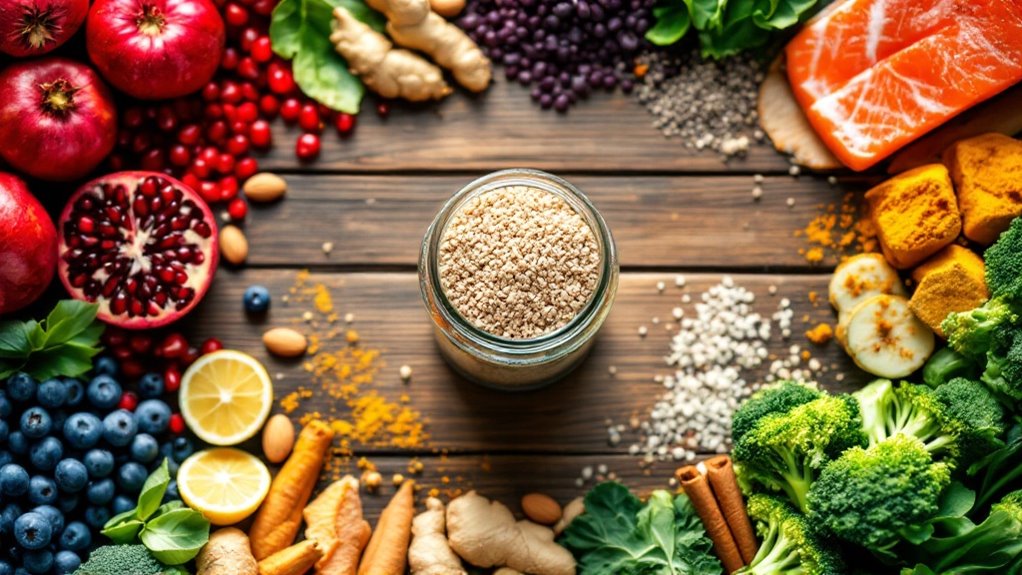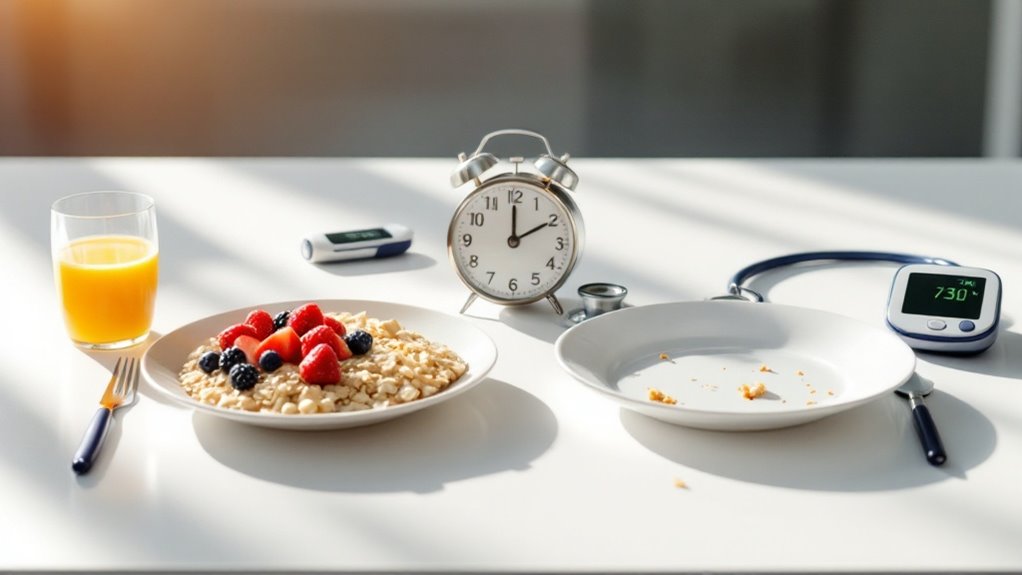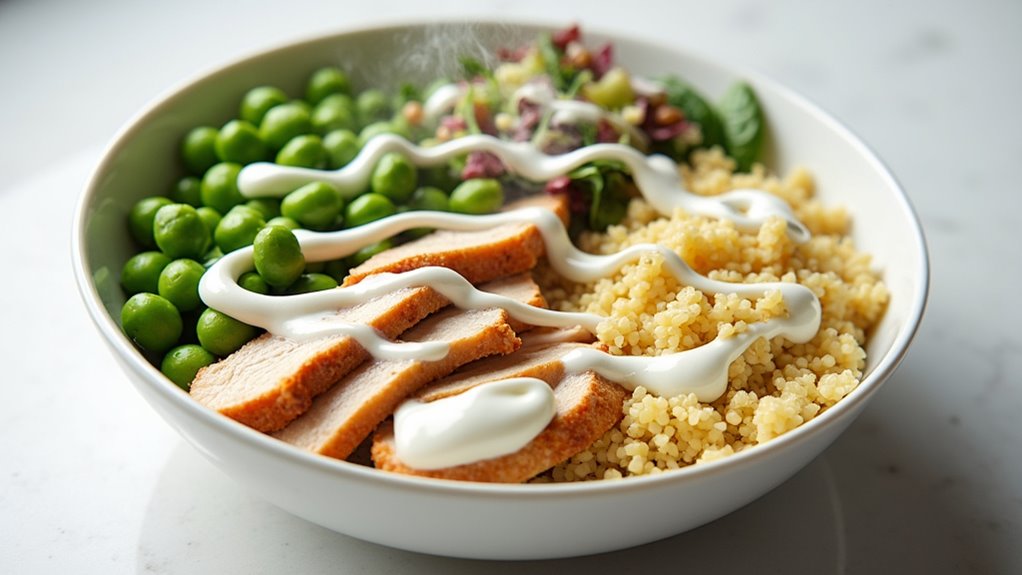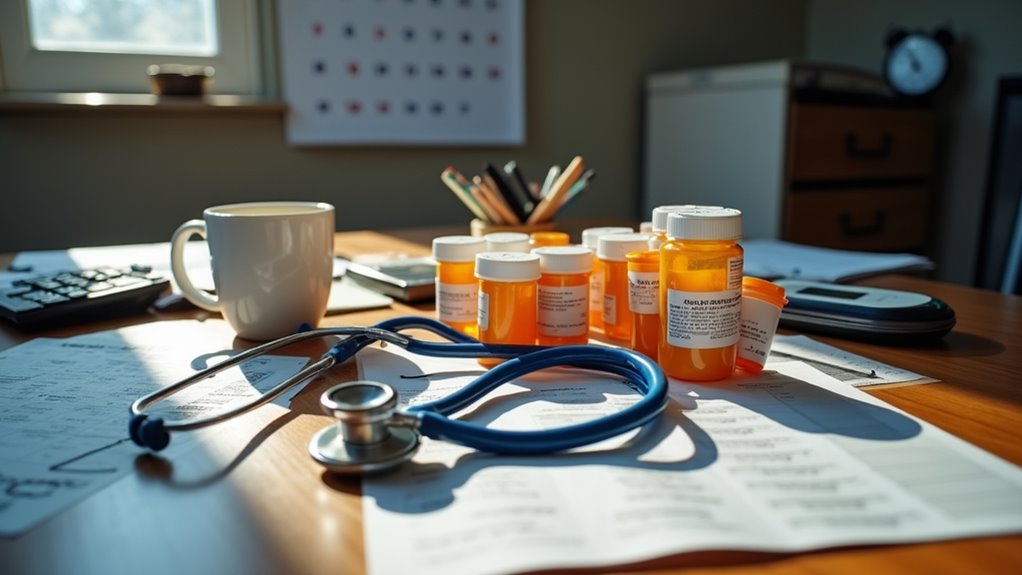Food’s impact on blood glucose isn’t a random circus act – it’s a carefully choreographed performance. Carbohydrates spike levels within 1-2 hours, while protein takes 3-4 hours to digest, acting like a metabolic traffic cop. Fats play the long game, slowing everything down. Processed foods? They’re the troublemakers that send blood sugar on a roller coaster ride. Smart eaters know the secret lies in combining these nutritional players just right.
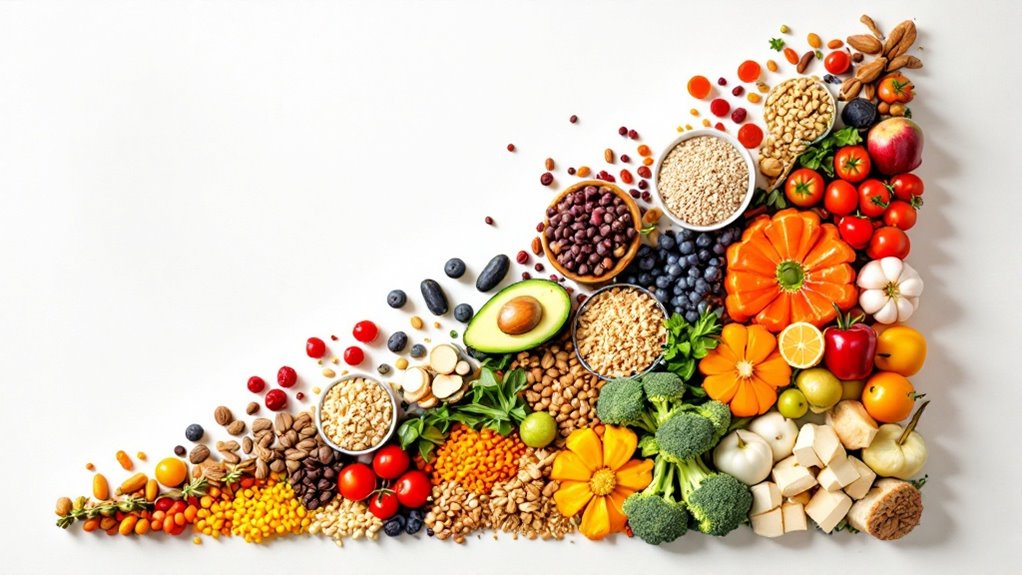
Food swoops in like a metabolic maestro, orchestrating the daily drama of blood glucose levels in the human body. It’s quite the performance, really. Carbohydrates take center stage, bursting onto the scene within one to two hours of eating. Some carbs are divas, causing dramatic blood sugar spikes. Others? Total professionals, keeping things steady and controlled.
In the grand performance of metabolism, carbohydrates dance across the stage, some causing drama while others maintain perfect harmony.
Here’s the kicker – protein takes its sweet time, hanging around for three to four hours like that guest who doesn’t know when to leave. But hey, at least it’s useful, helping insulin do its job and keeping hunger locked in the green room. These lean protein sources like chicken, fish, and eggs help maintain stable glucose levels. Consulting with diabetes educators can help create personalized meal plans that work best for your unique needs.
Meanwhile, fats are the slowpokes of the nutrient world, taking their sweet time to digest. They’re actually doing us a favor though, slowing down those attention-seeking carbs and preventing their dramatic sugar-spiking performances. The pancreatic beta cells respond by releasing just the right amount of insulin to keep blood sugar balanced.
The glycemic index is basically food’s report card. Low scores (under 55) are the straight-A students – think whole oats and their well-behaved friends. High scores (70 and up)? Those are the troublemakers, like white bread, causing chaos in the bloodstream. Let’s be honest – nobody likes a troublemaker.
Smart eating isn’t rocket science, but it does require some strategy. Think of it as assembling the perfect band: you need the right mix of players. Combining carbs with protein and healthy fats creates a balanced metabolic melody.
And here’s a pro tip: eat your veggies and protein before diving into those carbs. It’s like having the opening act calm down the crowd before the headliner hits the stage.
The whole show gets even more interesting when you factor in food processing. Processed foods are like auto-tuned pop songs – artificially enhanced and not great for your system. Whole, fiber-rich foods? They’re the acoustic versions – pure, natural, and easier on your body.
The bottom line? Your blood sugar levels don’t need drama. They need a well-orchestrated performance of balanced nutrients, thoughtful timing, and smart food choices.
Frequently Asked Questions
Can Stress or Illness Affect Blood Glucose Levels Alongside Food Intake?
Stress and illness pack a double punch on blood glucose.
Both trigger cortisol and adrenaline – hormones that send blood sugar soaring.
Throw in food, and it’s a triple threat.
The body’s stress response during illness makes insulin less effective, while emotional stress can lead to poor food choices.
Regular meals become a roller coaster ride when stress or sickness join the party.
What Role Do Artificial Sweeteners Play in Blood Sugar Management?
Artificial sweeteners won’t spike blood sugar – that’s their whole deal. Zero calories, zero glucose impact.
But here’s the plot twist: they might mess with gut bacteria and metabolism over time. While diabetics can safely use them as sugar alternatives, some research hints at potential long-term effects on insulin sensitivity.
Studies show mixed results, though regulatory bodies still consider them safe. Not perfect, but better than sugar for blood sugar control.
How Long Should I Wait After Eating to Check Blood Glucose?
Blood glucose typically peaks 1-2 hours after eating – that’s prime checking time.
Most doctors recommend the 2-hour mark as the sweet spot (pun intended).
Got a continuous glucose monitor? Lucky you – watch that curve in real-time.
For the old-school finger-prickers, stick to checking between 60-120 minutes post-meal.
Does the Time of Day I Eat Affect Blood Sugar Differently?
Yes, timing matters – a lot. Blood sugar spikes higher from the exact same meal eaten at night versus morning.
It’s basic biology: insulin sensitivity drops after dark, like clockwork. Eating most calories before 5 p.m. keeps glucose levels steadier.
Late-night meals? Your body struggles to process them properly. Early birds get better blood sugar control.
It’s not just what you eat – it’s when.
Can Drinking Water Help Lower High Blood Glucose Levels?
Yes, drinking water can help lower high blood glucose levels. Research shows it’s not just a myth.
Water reduces vasopressin levels in the body, which directly impacts glucose metabolism. Studies found that adding 1.5 liters of water daily can decrease fasting glucose levels, especially in people with elevated copeptin.
Dehydration messes with glucose control – it’s like throwing a wrench in the body’s glucose-processing machinery. No fancy drinks needed. Just plain old H2O does the trick.
